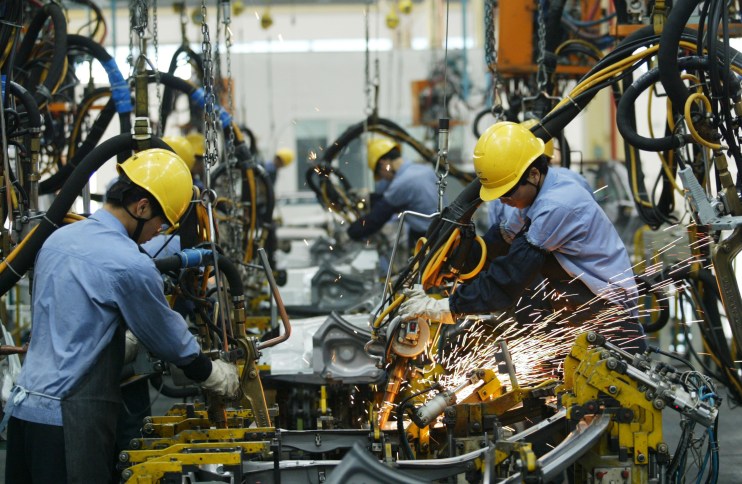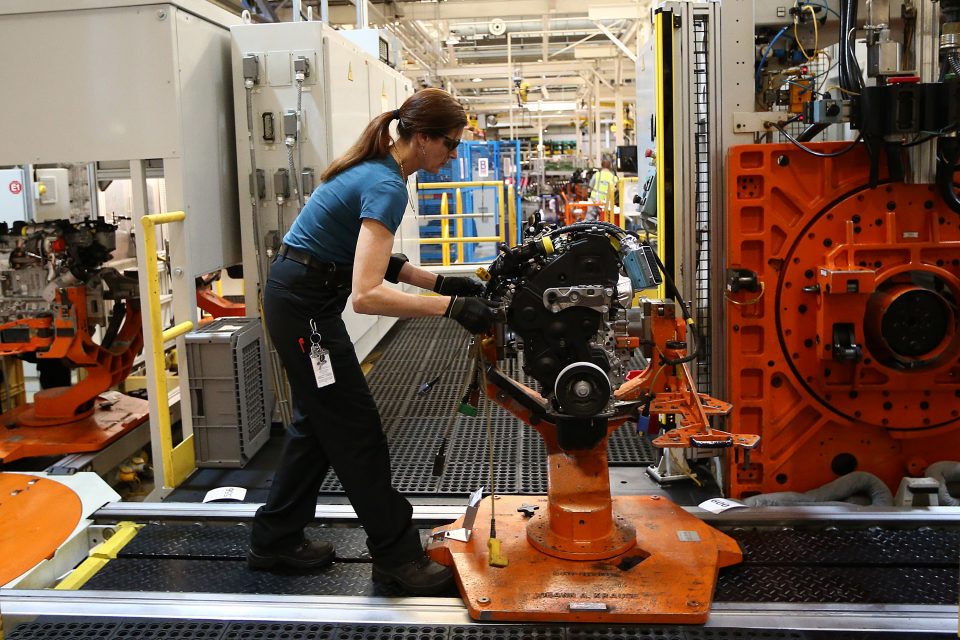‘Clouds gather’ for manufacturers as output hits lowest point since financial crisis

British manufacturing output shrank at the fastest pace since the financial crisis over the last three months, according to research.
Nineteen per cent of manufacturers reported that output rose while 30 per cent said it fell. This gave output a minus 11 per cent balance for the three months to mid-July.
The Confederation of British Industry’s (CBI) published the figures this morning in its quarterly industrial trends survey, a closely-followed industry barometer.
The survey has not registered such a low balance score since 2009, when the UK was struggling to escape the recession caused by the global financial crisis.
Manufacturers have suffered as a result of Brexit uncertainty combined with slowing global growth in the industry.
Optimism among firms also plunged over the period, with the survey giving a balance of minus 32 per cent. This is the lowest score since July 2016, just after Britain voted to leave the European Union.
‘Brexit stockpiling boost fades’
Manufacturers are struggling because the positive effect of stockpiling before the original Brexit date of 29 March has worn off.
CBI chief economist Rain Newton-Smith said: “As the tailwind from stockpiling weakens, clouds are gathering above the manufacturing sector. It’s being hit by the double-blow of Brexit uncertainty and slower global growth.
“With orders, employment, investment, output and business optimism all deteriorating among manufacturers, it’s crucial for the new Prime Minister to secure a Brexit deal ahead of the October deadline.
And get on with pressing domestic priorities from improving our infrastructure to fixing the apprenticeship levy.
“This will allow firms to focus on investing in new technology and tackling the skill shortages that plague this sector.”

‘Dire’ survey shows manufacturing struggling ‘markedly’
EY Item Club’s chief economic adviser Howard Archer said: “The July CBI industrial trends survey points to the manufacturing sector struggling hugely early on in the third quarter.
“This follows a pretty torrid second quarter for the sector when activity was hit by an unwinding of the stockpiling that had occurred in the first quarter amid Brexit concerns as well as muted domestic and foreign demand.
“Car plant shutdowns in April also held back the manufacturing sector in the second quarter.”
He said the result was “dire”, and that the sector was “very much on the back foot”.
“Firms plan to spend less on plant & machinery over the coming year and also on training and on product and process innovation.
“Very worryingly though, a record proportion of firms reported labour shortages as a likely limitation to capital expenditure.”
Main image: Getty